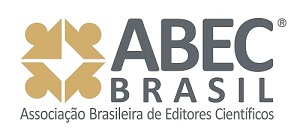THE MOBILE ADVERTISING IN ENGLISH CLASS: A CRITICAL LITERACY MULTIMODAL PRACTICE
Keywords:
Literacy, Multimodality, Critical, Advertising, Mobile devicesAbstract
Advertising plays a fundamental role in shaping consumers. Through this the subjects are positioned by the ability they have to acquire products (MAGALHíES, 2005). Among these, the cell phone is between the most desired, including by young people. Given this reality, we propose, through this work, to analyze critically and visually cell phones advertisings in English classroom in order to favor the critical position of elementary school students of the public school. Therefore, we will collect two advertisements in English media reports of the leading companies in the world. For the analysis of the images, we will consider the theoretical assumptions of Design Visual Grammar (DVG) proposed by Kress and van Leeuwen (2006), inspired by the Systemic Functional Linguistics, Halliday (1985). The critical analysis will be theoretically grounded from the contributions of Fairclough (2001, 2003), which proposes a Critical Discourse Analysis (CDA), to watch out for both the social dimension (FOUCAULT, 1987) as textual speech (HALLIDAY, 1985). According to Fairclough (2001), discourses of advertising promote consumption, given that this is ideologically marked (THOMPSON, 1985), and constituted hegemonic (GRAMSCI, 1998, 1995) to produce consensus. Moreover the debate in the classroom, from the analyzed material, will favor the critical multimodal literacy of students (GRYGORIAN; KING, 2008), and will contribute to a teaching empowering languages, with a view to social change (FREIRE, 1997).
Downloads
References
BOURDIEU, P. A Escola conservadora: as desigualdades frente à escola e à cultura. In: NOGUEIRA, M. A.; CATANI. A. (orgs.). Escritos de educação. Petrópolis, Vozes, 1998.
EAGLETON, T. Ideology: an introduction. London: Verso, 1991.
FAIRCLOUGH, N. Language and Power. London: Longman, 1989.
______. Discourse and Social Change. Cambridge: Polity Press, 1992.
______. Critical Discourse Analysis. London: Longman, 1995.
______. Discurso e mudança social. Trad. de Izabel Magalhães. Brasília: Editora UNB, 2001.
______. Analyzing discourse: textual analysis for social research. London: Routledge, 2003.
______. Critical discourse analysis. In Marges Linguistiques 9, pp. 76-94, 2005.
FLORES-KOULISH, S. Teacher education for critical consumption of mass media and popular culture. New York: RoutledgeFalmer, 2005.
FOUCAULT, M. História da loucura na idade clássica. Tradução de José Teixeira Coelho Netto. 1. ed. São Paulo: Perspectiva, 1978.
______. A arqueologia do saber. Trad. L. F. B. Neves. 3. ed. Rio de Janeiro: Forense-Universitária, 1987.
FREIRE, P. Pedagogia da autonomia: saberes necessários à prática educativa. São Paulo: Paz e Terra, 1997.
______. Educação como prática de liberdade. 2. re. São Paulo: Paz e Terra, 2011.
GEE, J. P. Social Linguistics and Literacies: ideology in discourses, critical perspectives on literacy and education. London, England: New York, 1990.
GRAMSCI, A. A Gramsci Reader: selected writings 1916-1935. FORGACS. D. (org.) London: Lawrence and Wishart, 1988.
______. Concepção dialética da história. Rio de Janeiro: Civilização Brasileira, 1995.
______. A vitalidade de um pensamento. São Paulo: Editora da UNESP, 1998.
GRIOGORYAN, A. KING, J. M. Adbusting: critical media literacy in a multi-skills academic writing lesson. English Teaching Forum. n. 4, 2008.
HALLIDAY, M. Language as social semiotic. Edward Arnold. London, 1978.
______. Introduction to functional grammar. London: Edward Arnold, 1985.
______. Part A. In: ______; HASAN, R. Language, context, and text: aspects of language in a social-semiotic perspective. Oxford: Oxford University Press, 1989.
JANKS, H. The Critical Language Awareness Series. Johannesburg. RSA: Wits
University Press and Hodder and Stoughton, 1993.
______. Literacy and power. London: Routledge, 2010.
KATO, M. No mundo da escrita: uma perspectiva psicolinguística. São Paulo: Ática, 1986.
KRESS, G.; VAN LEEWEN, T. Reading images: the grammar of visual design. London: Routledge, 2006.
MOITA LOPES, L. P. Oficina de Linguística Aplicada. Campinas: Mercado de Letras, 1996.
MAGALHíES, I. Análise do discurso publicitário. Revista da ABRALIN. v. 4 n. 1 e 2, p. 231-260, 2005.
OLIVEIRA, D. M. Análise crítica do discurso e letramento crítico. Revista Fórum Identidades, v. 9, p. 73-84, 2011.
OLIVEIRA, L. A.; CARVALHO, M. A. B. Fairclough. In: Estudos do discurso: perspectivas teóricas/ organização Luciano Amaral Oliveira. -1ed. – São Paulo: Parábola Editorial, 2013.
RAMALHO, V., RESENDE, V. de M. Análise de discurso (para a crítica): o texto como material de pesquisa. Campinas: Pontes, 2011.
SCHAWTZ, G.; BROWN, P. Media literacy: Transforming curriculum and teaching. Yearbook of the National Society for the Study of Education 104 (1), vi–294, 2005.
SILVA, M. C. O. ; CARVALHO, G. M. B.; BARBOSA, J. R. A. A propaganda de aparelhos celulares em língua inglesa: uma análise das imagens. In: III Colóquio Nacional de Linguagem e Discurso - III CONLID, 2013, Mossoró. Anais do III Colóquio Nacional de Linguagem e Discurso - CONLID. Mossoró: Edições UERN, 2013. v. 1. p. 1526-1537.
SIMON, R. Teaching against the grain. Westport, CT: Bergin & Garvey, 1992.
SOARES, M. B. Letramento e alfabetização: as muitas facetas. Revista Brasileira de Educação, 2004.
THOMPSON, J. B. Ideologia e cultura moderna. Petrópolis: Vozes, 1985.
Downloads
Published
How to Cite
Issue
Section
License
Copyright (c) 2015 José Roberto Alves Barbosa, Myrna Cibelly de Oliveira Silva

This work is licensed under a Creative Commons Attribution-NonCommercial-ShareAlike 4.0 International License.






